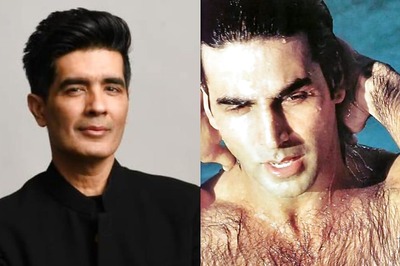
views
Intel Corp has had a tough time squeezing value out of recent mega-deals, putting some pressure on the success of its proposed $15 billion acquisition of Israeli car-technology firm Mobileye NV.
Self-driving cars are widely seen as the future of transportation and a growth area, but the Intel deal depends on more than technology as it looks to expand revenue in an increasingly competitive nascent sector.
The company's largest-ever deal, the $16.7 billion acquisition of programmable chipmaker Altera, has so far failed to meet its objective of helping to offset the continued decline in Intel's larger PC business. Intel also spun out its cybersecurity division, formerly known as McAfee, last year in a deal valuing it at $4.2 billion including debt, about five years after having bought the antivirus software maker for $7.7 billion. "We can recall few cases where so much has been spent(habitually) to buy so little," said Bernstein analyst Stacy Rasgon.
Rasgon, who rates the stock "underperform", notes Intel has spent over $30 billion in the last few years, while only adding about $2 to $3 billion in revenue.
Perhaps learning from those missteps, Intel's Mobileye deal is uniquely structured. The Santa Clara-based company's Automated Driving Group (ADG) will combine with Mobileye and will be led by Mobileye Chief Executive Amnon Shashua.
Betsy Van Hees, an analyst at Loop Capital Markets, said that Intel has previously attempted to fold acquisitions into its structure but they have not always been the right fit.
Intel's deals for embedded systems software maker Wind River Systems and McAfee exemplified that strategy.
"One of the things Intel has tried to do in the past is that they've taken a square peg, and they have taken a round hole and tried to put it in a square peg," said Van Hees, who rates Intel a "buy".
Intel, which is the largest private employer in Israel, hopes to bank on its experience to maintain Mobileye's startup culture, bringing Mobileye's "quick moving, fast acting culture" into Intel's autonomous driving division, Intel Chief Executive Brian Krzanich said on a conference call with analysts. Intel, which has been looking to shift away from its traditional business, missed the smartphone boom in the last decade but analysts hope the company will avoid a repeat.
"Investors should be pleased with the perspective that they (Intel) are getting in on this trend fairly early," according to CFRA Research analyst Angelo Zino.



















Comments
0 comment